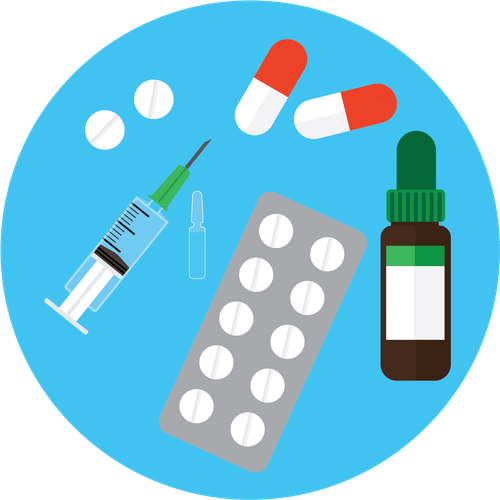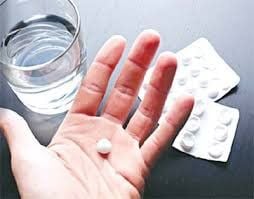This is an automatically translated article.
According to research, women's hearts have some different aspects than men, so the risk of heart disease in each subject is not the same. Therefore, understanding more about heart health as well as the risks that increase the likelihood of developing heart disease can help you better protect your heart. Here's everything every woman should know about her heart.
1. Signs of Heart Problems in Women Heart disease is a serious health problem common in both men and women. However, this disease can affect each person differently, with some heart diseases being more likely to occur in women and accompanied by different characteristics than men.
Some warning signs of heart disease in women often include:
Feeling of chest pain. Shortness of breath . Pain in the back, jaw, and upper abdomen. Feeling lightheaded, dizzy, nauseated, and vomiting.
2. Risk factors that increase the likelihood of heart disease in women Usually, the standard heart rate for women will range from 60-100 beats / minute. However, when the heart rate exceeds the above level, it will lead to heart palpitations and lead to many other health consequences. Early recognition of risk factors that lead to heart problems will help you protect your heart, including:
2.1. Spontaneous coronary artery dissection (SCAD) in women Spontaneous coronary artery dissection is a tear in one of the blood vessels in the heart. This can slow or block blood flow to the heart, causing severe chest pain and other symptoms such as a heart attack.
Overall, SCAD is a serious problem that requires urgent treatment. According to research, women are more likely to have spontaneous coronary artery dissection than men, especially in women who have recently given birth.
2.2. Broken Heart Syndrome The medical term for "broken heart" syndrome is stress cardiomyopathy. This condition is more likely to occur in women. Broken heart syndrome is often caused by a sudden release of stress hormones or by highly emotional events such as bereavement, heartbreak, or divorce.
With this syndrome, a woman's heart will become larger than normal and have difficulty pumping blood. At that time, the patient will have a feeling of severe chest pain and need to be treated quickly to prevent other dangerous complications.

Trái tim phụ nữ có một số khía cạnh khác so với nam giới
2.3. Menopause in women Another risk factor that affects a woman's average heart rate and increases the risk of heart disease is menopause. Although not directly causing heart disease, the natural changes in the body that occur during menopause can make women more susceptible to this health problem.
When estrogen levels drop, arteries tend to become stiffer. In addition, other factors such as “bad” LDL cholesterol, belly fat or high blood pressure can also occur after menopause. Therefore, to protect a healthy heart, women need to be active in physical activity to limit the above risks.
2.4. Inflammatory conditions in the body Inflammatory conditions in the body, such as lupus or rheumatoid arthritis also significantly affect a woman's heart and increase her chances of heart disease. This can happen even at a young age, so to prevent heart problems, you need to avoid smoking, limit alcohol abuse and increase exercise.
You can also control inflammation with medications. However, avoid steroids as they can increase your odds of heart disease. Ideally, you should talk to your doctor about the right method to protect your heart.
2.5. Depression – a risk factor for heart disease in women Depression is a mental health condition that can double a woman's risk of heart disease. This problem can mess up a woman's average heart rhythm and put stress on the heart.
In addition, depression also increases the risk of depression and leads to many other serious health consequences. You should talk to your doctor or therapist so that there can be early remedies for this condition.
2.6. Diabetes Diabetes is another risk factor that increases the risk of cardiovascular disease in women. High blood sugar can slow down the flow of oxygen in the blood and lead to the buildup of plaque in the arteries.
Another cause is that women with type 2 diabetes are more prone to obesity, high cholesterol and high blood pressure. You can reduce your risk of these problems by controlling your weight and blood sugar through diet and physical exercise.
2.7. Excessively low weight Although overweight women are more likely to develop heart disease, that does not mean that thin people are less prone to this health condition. According to research, women with excessively low weight are still at risk of increased cholesterol and blood pressure, which in turn increases the risk of heart disease.
When you are aware of your risks, you should immediately take preventive measures to control your risk factors well. You can see your doctor to spot risks and find ways to deal with them.

Phiền muộn – yếu tố làm tăng nguy cơ mắc bệnh tim ở phụ nữ
3. Measures to help prevent the risk of heart disease in women When you better understand your heart, you will take effective measures to prevent heart problems. Here are some ways to help reduce your risk of heart disease that you should refer to:
3.1. Check your family history If your sister or mother had heart disease before age 65 or had a stroke, you're at increased risk for the same. Ideally, you should see your doctor and discuss your family history to make sure you find the right preventive steps to reduce your odds of getting the disease.
3.2. Quit smoking A woman's heart health is also closely related to smoking habits. According to research, women who smoke are about 25% more likely to have a heart attack than men. In addition, the habit of smoking also damages blood vessels, increases blood pressure levels and leads to the formation of blood clots. Women's risk of heart disease is also significantly increased when oral contraceptives are combined with smoking, especially after the age of 35. Therefore, giving up the habit of smoking early will help women eliminate or reduce the risk of heart problems.
3.3. Monitor and manage your blood cholesterol closely. Cholesterol can build up in your arteries and form hard plaques over time that clog your arteries. You can take a quick blood test to get your cholesterol readings.
To reduce the level of bad LDL cholesterol in the body, you should focus on simple daily changes. This includes monitoring cholesterol, dietary sugar, and incorporating more exercise.

Trái tim phụ nữ cũng trở nên khỏe mạnh hơn và hoạt động năng suất hơn nhờ vào những bài tập thể dục
3.4. Maintain a healthy weight Women's risk of heart disease is greatly reduced when they know how to maintain a healthy weight. You can eat a lot of fresh foods, low in calories, sodium and trans fats, such as green vegetables, fruits, fish, whole grains,... Besides, you can also participate. Take heart-healthy cooking classes or do fun activities that reduce stress, like going for a walk with friends, dancing or doing Zumba.
3.5. Increase physical activity As soon as you turn 40, you should be active in doing more physical activity every day to reduce your risk of heart disease. Women's hearts also become healthier and more productive thanks to cardiovascular exercise, such as yoga, jogging, walking or cycling.
3.6. Protect your heart during pregnancy During pregnancy, a woman's heart normally pumps more blood. This can put strain on the heart as well as the arteries. On the other hand, labor and delivery also put extra strain on the heart. Therefore, women with heart rhythm or valve problems should pay special attention to watch for symptoms, such as shortness of breath, heart palpitations or some other sign of infection during pregnancy.
If you have high blood pressure during pregnancy, it can lead to preeclampsia and lead to serious health problems for both mother and baby. Therefore, monitoring your heart rate and promoting heart health during pregnancy is essential.
Please dial HOTLINE for more information or register for an appointment HERE. Download MyVinmec app to make appointments faster and to manage your bookings easily.
Reference source: webmd













